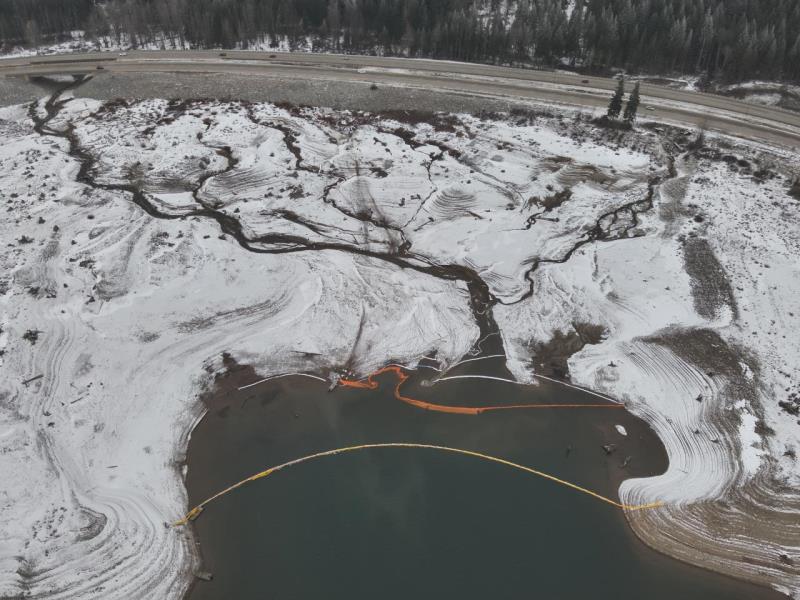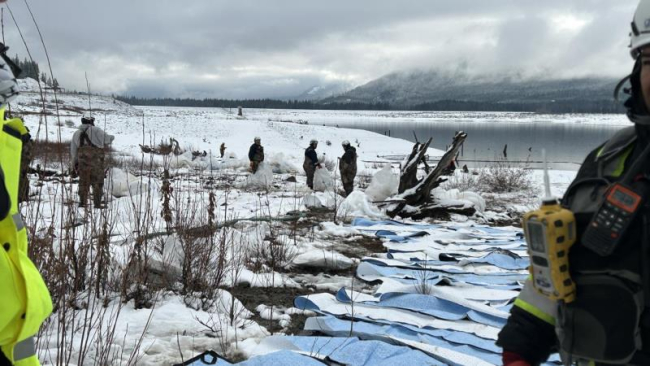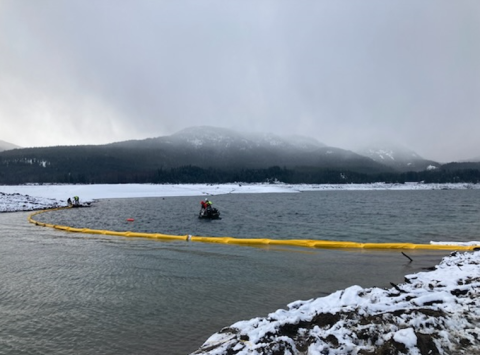Every month, NOAA’s Office of Response and Restoration’s (OR&R) Emergency Response Division provides scientific expertise and services in support of spills and other coastal and ocean emergencies. Our support ranges from producing oil spill trajectories that estimate where a spill may spread; to identifying possible effects on wildlife and fisheries; to estimating how long oil may stay in the environment. This support is to the U.S. Coast Guard (USCG) as the federal lead for coastal zone spills, and also assists other Unified Command members including state and industry leads for response operations. We also receive requests to track and model other floating objects, such as log booms or shipping containers that have broken free, whale carcasses, fish die-offs, and algal blooms.
Over the past year, OR&R responded to 177 incidents. During December, OR&R provided response support for 16 incidents, including 12 new incidents in five states and one outside of the United States (the Kerch Strait). All of the new incidents were actual or potential oil spills, and one also included search and rescue modeling.
OR&R staff prepared 63 incident reports and documents, including three fate and trajectory analysis. Five of the incidents this month were unknown volumes, but seven of the incidents had volume estimates. Cumulatively, these incidents posed an approximate risk of more than 1.14 million gallons of oil.
(Note: All spill volumes are approximate and based on initial information that may be updated after further investigation.)
Here are some of the incidents we worked on during December:
Alpha Transport Tank Truck Spill; Keechelus Lake, WA
OR&R supported the Unified Command that was formed to respond to a gasoline spill into Keechelus Lake in Washington state, after a tanker truck slid on ice and overturned.
On December 9, 2024, the NOAA Scientific Support Coordinator (SSC) for the Pacific Northwest was notified by the Environmental Protection Agency (EPA) Federal On-Scene Coordinator (FOSC) that a tanker truck had slid on ice and overturned on December 7. The tanker was carrying gasoline with a “worst case” discharge of 2,000 gallons. The gasoline spilled onto soil and a storm drain at the location, and ultimately into Keechelus Lake, a reservoir that has tributaries that flow into the Yakima and Columbia River.
A Unified Command was formed, composed of the EPA, Washington State Department of Ecology (WA ECY), the Yakama Nation, and the responsible party, trucking company Alpha Transport.
The EPA requested OR&R guidance to notify tribal partners and information about endangered species that could be impacted. The SSC also consulted on the use of flushing and bioremediation as response techniques, and helped provide the FOSC with NOAA weather predictions for the location. Sheens were visible in the storm drain runoff and inside a boomed area where the stream discharges into the lake. Gasoline vapors were pervasive in the cleanup area. A hazardous materials contractor was brought in for cleanup operations, while planning was conducted to address subsurface gasoline contamination.
After receiving a notification about the accident from the Washington State Department of Health, the City of Cle Elum switched its primary water intake from the Yakima River to its well field on the Cle Elum River. A field team monitored for wildlife; however, no wildlife accumulations were noted in the area.
As of January 2, 2025, the cleanup standards for the initial spill response had nearly been met for the site. Additional assessment will be ongoing over the course of the winter, but a more complete understanding may be delayed by deep snow coverage in the winter and then by the rising lake level in the spring.
Here is the complete list of December’s incidents. Click on the links to find out more:
- F/V Wind Walker Sinking; Hoonah, AK
- Tugboat Georgie Sinking; Ogunquit, ME
- Delta National Wildlife Refuge / Octave Pass Mystery Sheen; Pilottown, LA
- Mystery Sheen; Main Pass 81, Louisiana
- Alpha Transport Tank Truck Spill; Keechelus Lake, WA
- Diesel Release; Galena Park, TX
- Grounding of Pleasure Craft 'Mystery'; Sand Point, AK
- M/V Dalma Motor Gas Oil Discharge; Beaumont, TX
- Volgoneft 212 sinking and oil spill; Kerch Strait
- Mystery Sheen in Main Pass 69; Main Pass, LA
- Mystery Sheens Main Pass 81
- Delta Duck Octave Pass Mystery Sheen; Pilottown, LA





